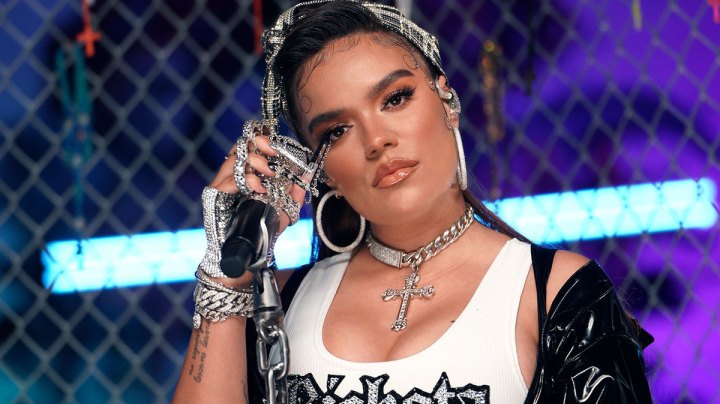Karol G Was Once Told ‘Women Do Not Do Reggaeton’

Photo by Rodrigo Varela/Getty Images for MTV
In time for the release of her new album, KG0516, Karol G told Los Angeles Times, “For years, I heard that women do not do reggaeton,” she says. “Reggaeton and urban music belong to men, but as a woman, you belong to men.”
The reggaetonera recalled how in the early 2000s, during early talks with her now-label, an executive had tried to stir her away from the genre, citing that one of the only other women in reggaeton, Puerto Rican MC Ivy Queen, was both “reggaeton’s most visible and its most despised woman” largely due to her feminist verses.
“Women are on a whole other level now,” she adds. “We are well prepared to lead. We’ve earned it, and we will fight for it.”
While men in the genre have been afforded few opportunities to crossover into the mainstream, they are often given more chances to do so. Women are often met with outdated patriarchal and misogynist ideology, and audiences in Latin America are a challenge due to the “uninhibited sexual lyricism that is essential to reggaeton.”

“I once had an interview in Mexico,” recounts Karol, who identifies as a feminist. “I will never forget how the journalist asked, ‘Why would you, as a woman, talk about how your bed squeaks?’ Like with shame. It made me very sad that she’d start with that. ‘What a pity,’ I thought. ‘I guess your bed doesn’t squeak.’”
Though sexism fuels a large part of the challenges Karol G is trying to break down, she too has made missteps. She is starting to recognize her position of privilege in a genre that was created by Black people in the Carribean, but yet does not offer the same success to Black Latinos that is offered to meztizos or white passing Latinos.
“I just grew up in such privilege that I didn’t understand the [scale of] racism,” she says. “To tell you the truth, I used to be a little scared to talk about it, but I’m learning now.”
